
Most famous trekking destinations of India :
From the arid heights of Ladakh to the cool dales of Himachal Pradesh, the organic oasis of Sikkim, and the devotional abode of Garhwal, the mountain ranges of northern India are truly rewarding. These regions include varied terrains, historical backgrounds, and many travel opportunities that make them the best places to visit by travelers who want both the beauty of nature and the history of the community. No matter if you fancy yourself a daredevil, a pilgrim on the path of spiritual enlightenment, or an admirer of nature’s beauty, these lands have something to offer to everyone.
Come trek the four famous mountain ranges with us! Himalaya Shelter!
Ladakh: A high-altitude desert marvel

1) Ladakh
The Monument of High Altitude, Empty Desert Ladakh, also called ‘The Land of The High Passes’, is famous for being a lofty high altitude desert region. In this region is characterized by mountainous terrains with steep slopes, huge rocks, and other features that make it almost seem barren, with limited vegetation cover, which gives this region a unique natural beauty that immediately draws the attention of anyone who is lucky enough to set his/her eyes on it.
Exploring Baffin Island is not for the faint of heart – the combination of sharp mountainous rocks and impressive rocks make for a spectacular experience for anyone who wants to admire one of the most beautiful regions in the world.
2) The legend of Buddhist culture
Currently, Ladakh has numerous Buddhist monasteries that are established centuries ago and provide sanctuary and knowledge. Places like Thiksey and Hemis are not just monasteries, but they hold many aspects of Buddhist culture and structure from Tibet. These monasteries contain many relics important for Buddhists, including thangkas – paintings, and manuscripts that help you understand the culture of the region.
3) Magnificent lake
This lake views some of the most popular lakes in Ladakh hue the crystal line blue water and these include the Pangong Tso lake and Tso Moriri Lake. These lakes lie surrounded by the towering Himalayas and offer freshness and beauty to any nature lover or a tourist who loves to capture glimpses of picturesque nature. They are located in the otherwise harsh terrains of Ladakh; their calm and pristine looks offer a stark cosmology amidst the natural backdrop. But for those who love their thrills, Ladakh has many faces, one of which is trekking, climbing, and river rafting.
4) Adventure tourism in Ladakh
The terrains of this region offer spectacular views of the Himalayan Mountains making it a perfect backdrop of these thrilling activities. A few adventures one may consider include the Markha Valley Trek, Stok Kangri, climb, and river rafting in the Zanskar River among others. The village of Ladakh is blessed in terms of culture, with elements of Tibetan, Indian and Central Asian imbued in it. This cultural diversity is evident in food, dance, dressing, and even fabrics and jewellery. Carnivals such as Hemis and the Losar survives up to date and glimpse into the culture and beliefs that clothed Ladakh through vibrant dolls, dances, and feasts.
5) Cold desert wildlife
Of the wildlife found in the cold desert, some include those species specific to the region of Ladakh. Some of the animals found in this park are snow leopard, Tibetan wild ass (kiang), and birds like migratory birds. For birdwatching, the Hemis National Park affords an opportunity to observe these elusive animals in their natural environment.
6) Ancient trade routes
Literature shows that in the past, Ladakh formed part of the fabled ‘Silk Route’ that linked Central Asia with South Asia. This is evidenced by cultural and economic history of the region, wherein previous trade networks and commerce impacted the current society and economy. The most popular and adventurous winter trek, Chadar Trek, is tough but a very interesting one where people have to cross the frozen Zanskar River.
7) Chadar Trek
In this trek, the trekkers get to share the winter wonders of Ladakh while having to walk over the icy terrains. Art and craft work is evident in the houses that are made of mud bricks with roofs made of wood and straw, prayer flags, and artistic monasteries that are uniquely built. These structures are made to bear the unrelenting heat and provide a look into the pre modern way of living of the Ladakhi people.
8) Harsh climate
The region of Ladakh experiences, very cold winter and comparatively short and moderate summer season. Nevertheless, the temperature varies between extremely cold winter and relatively warm summer in the tourist season, and this makes it a destination for people willing to counter various climatic conditions.
Himachal – a destination for perfect hill stations

1) Hill Stations
This state enjoys like hill stations like Shimla, Manali and Dharamshala very popular among the tourist. These are beautiful towns with an excellent climate that can only be gotten outside the busy cities away from noise and pollution. With regards to the colonial daring elements, Shimla is the place to be as well as Manali for the adventuresses while spirituality enthusiast will be enticed by Dharamshala.
2) Apple Orchards
The production of apples in Himachal Pradesh particularly in the districts of Kinnaur and Kullu Valley is greatly believed to produce the best standard of apples. These orchards not only yield a lot of revenues to the state’s economy but also augment to the aesthetic feature of the land; apples in particular have beautiful flowers during their budding season.
3) Adventure Sports
Adventure tourism in Himachal Pradesh provides numbers of activities to the tourists. Some of them are paragliding in Bir Billing, skiing in Solang Valley, trekking in Parvati Valley and several others. The resulting geographical diversity of the state makes it almost ideal for most adventure loving persons to practice their hobbies.
4) Cultural Heritage
Himachal Pradesh is endowed with cultural variation due to Affinity to Hinduism and Tibetan Buddhism. This heritage reflected in its temples and monasteries and in the festivals which are hold thought the country. The carving of the wooden beams inside the temple of Hidimba Devi at Manali and the monasteries in Dharamshala provide a pan artistic and religious flavor of the state.
5) Ancient Temples
There are magical temples in the state including Hidimba Devi Temple and Baijnath Temple. These are beautiful and prime temples where laymen and the devout go for worship as tourists visit them for sight-seeing. They introduce historical and specifically religious aspects into the state’s culture and thus have historical and religious values.
6) Himalayan Rivers
Several rivers which are originating from Himalayas are passing through the Himachal Pradesh like Beas, Sutlej and Chenab. These rivers can also be used for river rafting as well as fishing which makes them a Beek choice for the adventure enthusiasts as well as the lover’s of nature.
7) Traditional Handicrafts
The handicrafts products of Himachal are famous woollen shawls (Pashmina), carpets, wooden handicrafts etc. Cultural crafts and self-made products developed and produced by local artisans are unique and, therefore, tourists usually prefer them.
8) Heritage joy Train
Started in colonial Vicorian style, the UNESCO World Heritage-site Kalka-Shimla Toy Train passes through a green hilly landscape and by steep tunnels and bridges. This is neither just a means of transportation like the normal trains, but a historical simulation that provides expansive revue of the sports.
9) Folk Music and Dance
Music and dance are a very important part of the celebration of festivals of Himachal and some prominent forms of music and dancing are Nati and Chamba dance. Such performances depict the regional diversity and energetic culture of the state and visitors are indeed privileged to watch them.
10) Ecological Diversity
Himachal is well endowed with different ecological zones right from the meadows to sub-tropical forests. This ecological setting supports bio-diversity and wildlife conservation areas, thus; the area is best suited for anybody who has a natural bent of mind and love for the wild.
Sikkim: The Organic State

1) Himalayan Biodiversity
This state is famous for its beautiful campestris; flora and fauna that grow in Sikkim extend from the sub-tropical to the alpine forests. This fairly small state houses species like the red panda and the Himalayan blue sheep so it is a vital province to protect wildlife and maintain the biological diversity.
2) Cultural Melting Pot
Sikkim has basically the cultural integration of Tibetan, Nepalese, and Bhutia people. That cultural intermix is reflected in monasteries of Amdo, in Losar and Bumchu festivals, as well as in traditional costumes and accessories, making the trip to Amdo culturally rich for the tourist.
3) Khangchendzonga National Park
Part of the park is listed as a World Heritage Site, and its representatives Key Biodiverse Area, Spoonerizable Important Bird Area as well as the snow leopard’s territory. Basically, it is rich in trekking trails with the view of himalayan range and thus has many visitors from people who love nature and the unfortunate ones that have an urge to adventure.
4) Organic State
Sikkim remains the only state in India that is chasing a zero-budget natural agriculture that entails eco-friendly biotechniques. It also plays its part in maintaining a clean and natural environment from this sustainable farming practices making the state a worthy example of how farming should be done.
5) Tea Gardens
The Fermented tea produced here is organic and the gardens such as Tea Garden In Temi are beautifully located. These gardens also come with sceneries and these gardens allow the visitors to be educated on how tea is grown to, and even processed, making their ‘concern’ more informative.
6) Adventure Tourism
Trekking to Goecha La, river rafting in the Teesta, mountain biking trails are some of the adventure activities Sikkim has to offer. These activities draw people all over the world who would love to participate in Activities within the Himalayan terrains.
7) Rumtek Monastery
The largest monastery of the Kagyu pa school of Tibetan Buddhism is the Rumtek Monastery which is the seat of the Karmapa Lama. Moreover, the monastery contains relics, thangka paintings, and myriad other religious relics and items that makes the place sacred and valuable landmark of the county.
8) Hot Springs
Tourism is one of the primary sources of income; Sikkim’s hot springs at Yumthang or Reshi springs possess curative qualities. All these hot springs provide recreation in the natural environment of the region and can help the visitors to rest by taking therapeutic water supply.
9) Traditional Cuisine
Sikkim shares some of its food characteristics with its neighbors, Tibetan and Nepalese and therefore the well-known Sikkim dishes are momos, thukpa and gundruk.
10) Peaceful Environment
Sikkim earned its reputation of a calm and spiritual state. There are many monasteries, meditation centres, and beautiful landscapes which are the sources of comfort and spiritual replenishment for the state’s visitors.
Garhwal Himalayas Uttarakhand: The Spiritual Heart of India

1) Chota Char Dham
Garhwal is also blessed with Chota Char Dham which is a group of four pilgrimages of the Hindu religion which are Yamunotri, Gangotri, Kedarnath and Badrinath. Such sites are visited by Hindus and Yogis from all over the world and they provide a spiritual experience to visitors.
2) Valley of Flowers
The Valley of Flowers is one of the UNESCO world heritage site and comes to bloom with twelve varieties of alpine flowers during the rainy season. This valley provided treks in a beautiful and biodiverse area which indeed is a perfect place for tourists and trekkers.
3) Char Dham Yatra
Char Dham Yatra comprising of Gangotri, Yamamori, Kedarnath and Badrinath is one of the holiest pilgrimage in India. The great pilgrimage is performed by millions of people eagerly expecting to receive a divine spirit and enlightenment.
4) Himalayan Peaks
Some of the major peaks of Garhwal include Nanda Devi, Trishul and Kamet etc. These ones are characterized by steep climbing activities and spectacular scenic views that draw mountain climbers and tourists across the world.
5) Ganges River Source
Devprayag is the place at where two rivers Alaknanda and Bhagirathi joins to form the river Ganges. This place has vast religious importance to Hindus for it is a site for worship and to seek divine intervention through this confluence.
6) Himalayan Villages
There are quaint little villages in the region like Mana, which is the last Indian village before the border of Tibet. A number of these villages depict original structure of Garhwali house and Garhwali culture and hospitality to visitors.
7) Skiing and Winter Sports
Skiing and snowboarding finding in Auli are outclass here and it is situated in Garhwal region of Uttarakhand. Hence, Auli has been developed as a tourist destination offering thrilling winter sports in natural surroundings with spectacular view of Nanda Devi.
8) Wildlife Sanctuaries
Wildlife sanctuaries that are located in Garhwal include; Nanda Devi National Park and Valley of Flowers National Park. These are conservation areas and are thought to be best suited for snow leopards, musk deer and the birds of the Himalayas.
9) Alpine Lakes
The net is also capped by beautiful attractions such as Hem Kund and Roop Kund lakes that are alpine lakes. These are trekking routes over the lakes passing through the virgin Himalayas, which, in addition, provide required puja, asker.
10) Garhwali Cuisine
Healthy and delicious Garhwali foods are Chainsoo, Kafuli, and Mandua ki Roti. With these meals, one can capture the flavors of the region through the use of natural products, and cooking preparation accepted in the area.
About Author

Himalaya Shelter
Recent news
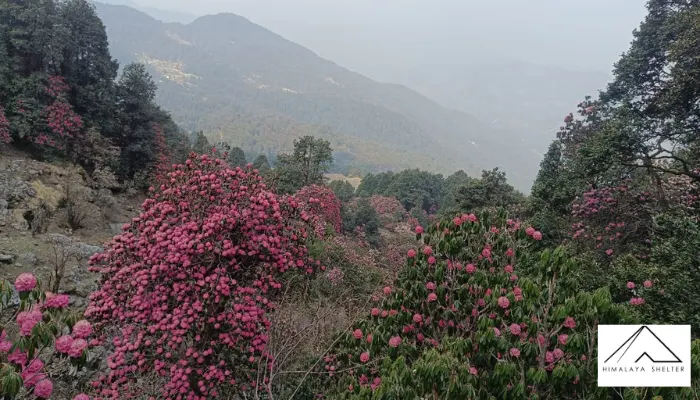
16 Feb 2026
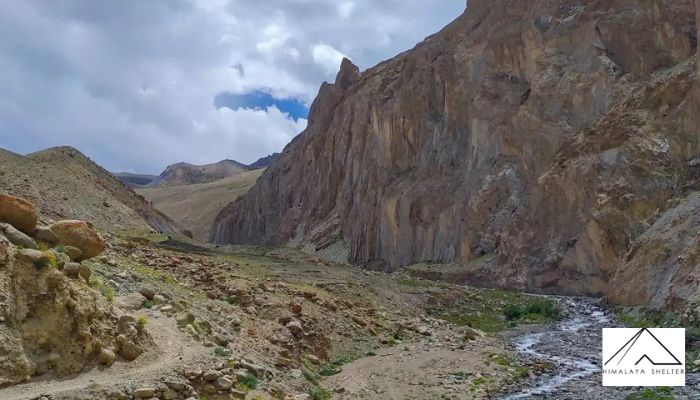
11 Feb 2026
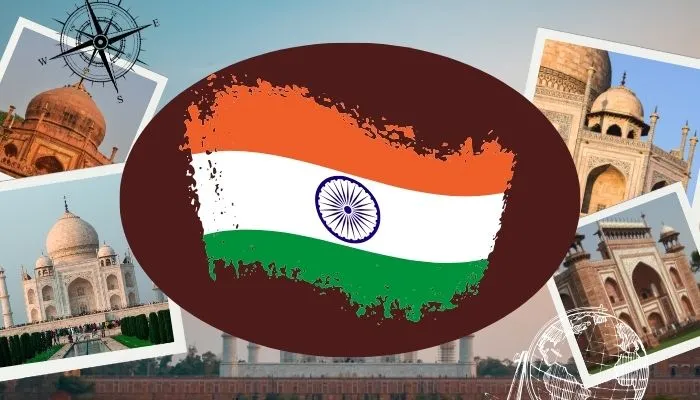
11 Feb 2026
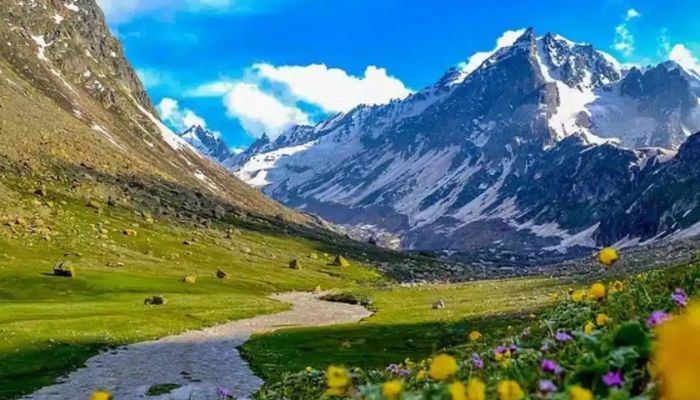
10 Feb 2026
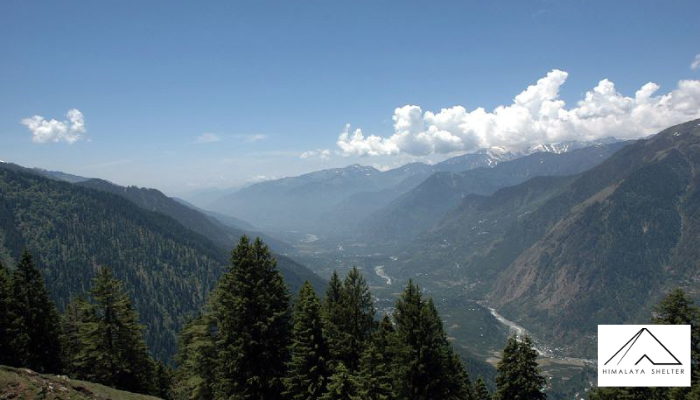
05 Feb 2026
Recommended Treks
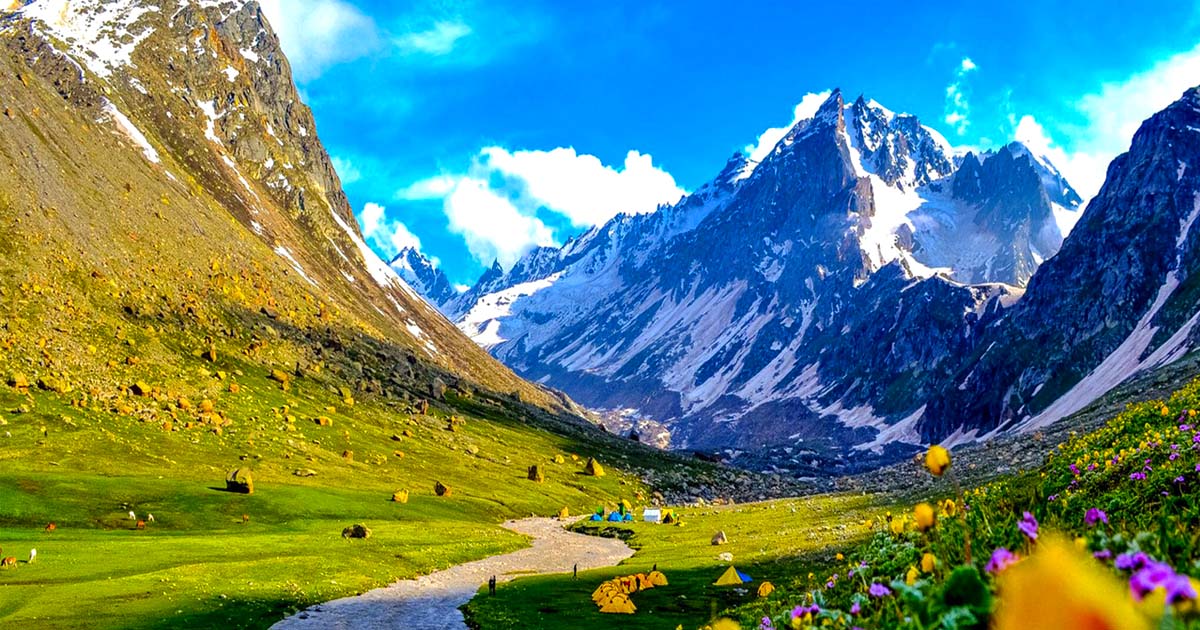

Cost: ₹11,299 | $125.46
Type: Easy
Best Time: January, February, March, April, May, June, September, October, November, December
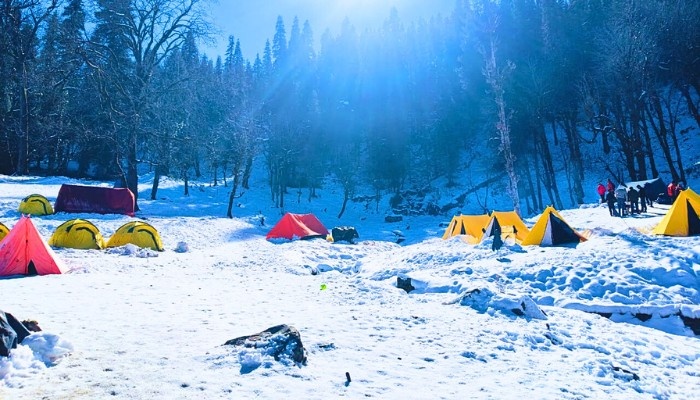
Cost: ₹7500 | $83
Type: Easy
Best Time: January, February, March, April, October, November, December



Cost: ₹11500 | $130
Type: Moderate
Best Time: May, June, September, October, November

Cost: ₹12500 | $142
Type: Moderate
Best Time: March, April, May. June, September, october, November